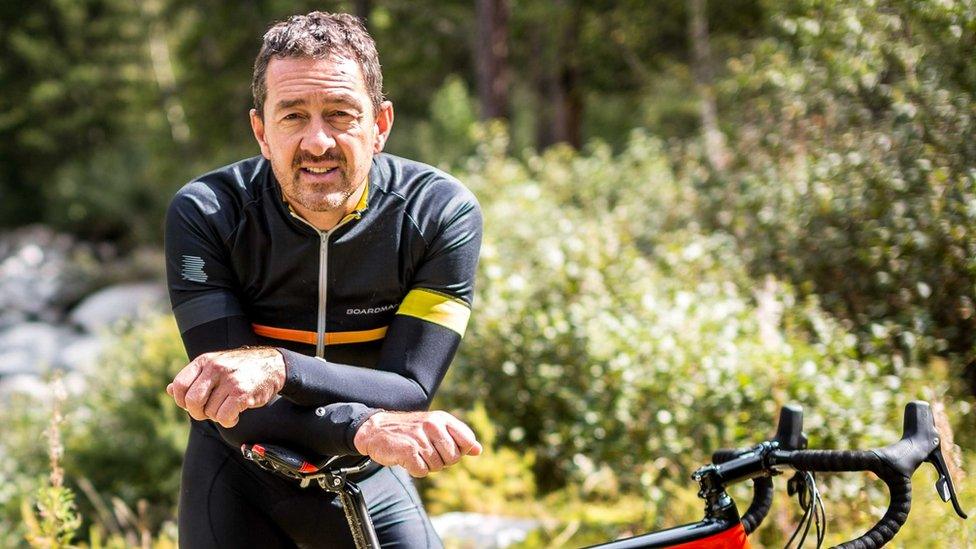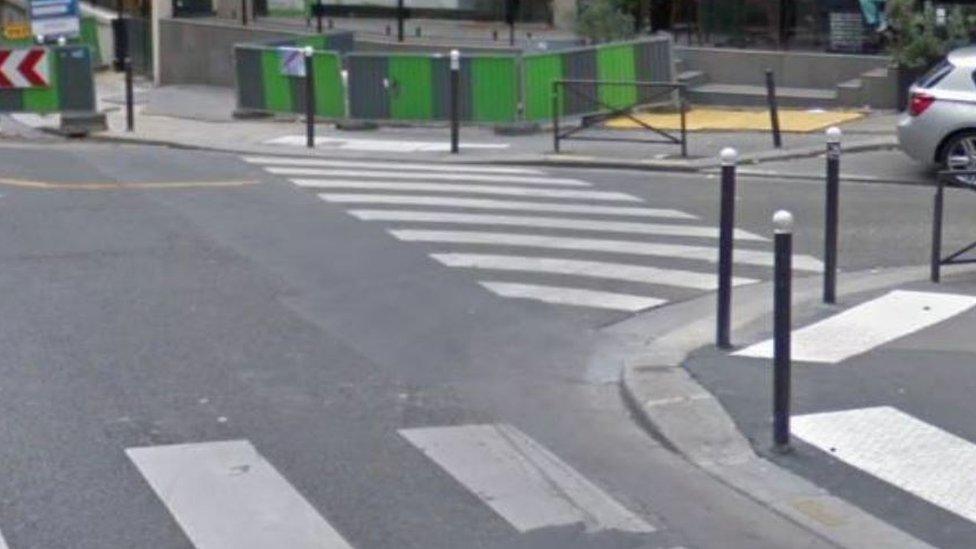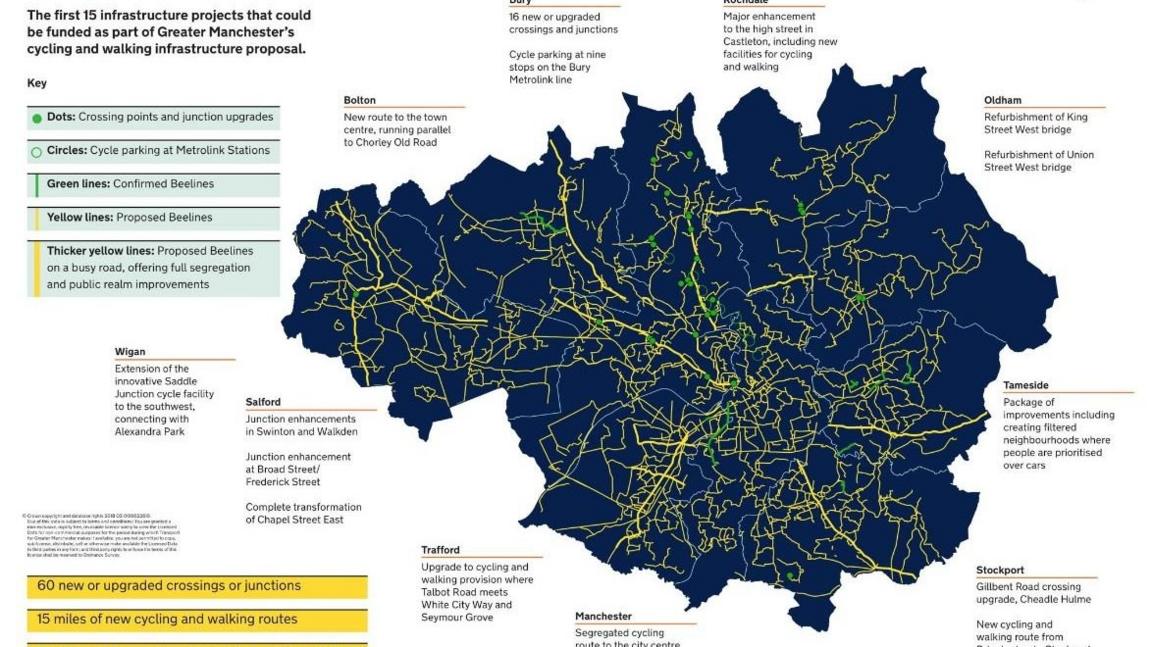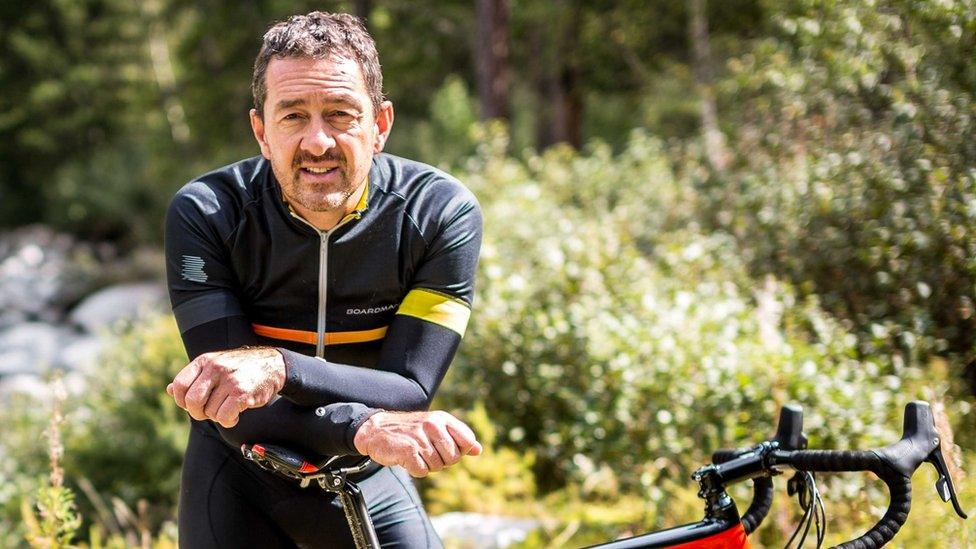Chris Boardman calls for 'cheaper' zebra crossings in Greater Manchester
- Published

Chris Boardman said the DfT was guilty of "backwards thinking" after it blocked his zebra cross trial
Olympic cycling champion Chris Boardman has accused the government of blocking plans to paint 20,000 zebra crossings on roads in Greater Manchester.
The region's walking commissioner said "backwards thinking" was preventing the region from trialling cheaper crossings without expensive flashing beacons.
Mr Boardman said simple French-style crossings could be painted for £200 and would protect pedestrians from traffic.
The Department for Transport (DfT) said it "would always put safety first".
The crossings would form a key part of Transport for Greater Manchester's (TfGM) Bee Network, which is aimed at encouraging people to walk and cycle.
Under DfT regulations, approved zebra crossings must include flashing Belisha beacons and zigzag markings which raise the cost to £30,000 each.
'Greater flexibility'
Mr Boardman first approached the government last year with a request to trial a cheaper version, common in much of Europe as well as private car parks, railway stations and airports in the UK.

TfGM wants to install French-style zebra crossings to make walking safer
The DfT asked for TfGM's trial crossing in Salford to be removed in June 2018 because it did not meet regulations.
"To say 'we won't even trial it', is backwards thinking," said Mr Boardman.
"With these crossings, we could make it safe for entire estates of kids to walk to school."
TfGM is now paying "hundreds of thousands of pounds" to the Transport Research Laboratory, to run a trial which Mr Boardman hopes will convince the DfT to relax its rules.
Mr Boardman has been backed by Greater Manchester mayor Andy Burnham, who wrote a letter to Transport Select Committee chair Lilian Greenwood asking for her to consider "greater flexibility" around road signage.
A DfT spokesman said: "We will always put safety first and any potential regulation change would need to be based on robust research and supported by off-road trials."
- Published22 March 2019

- Published20 July 2018

- Published28 July 2017
